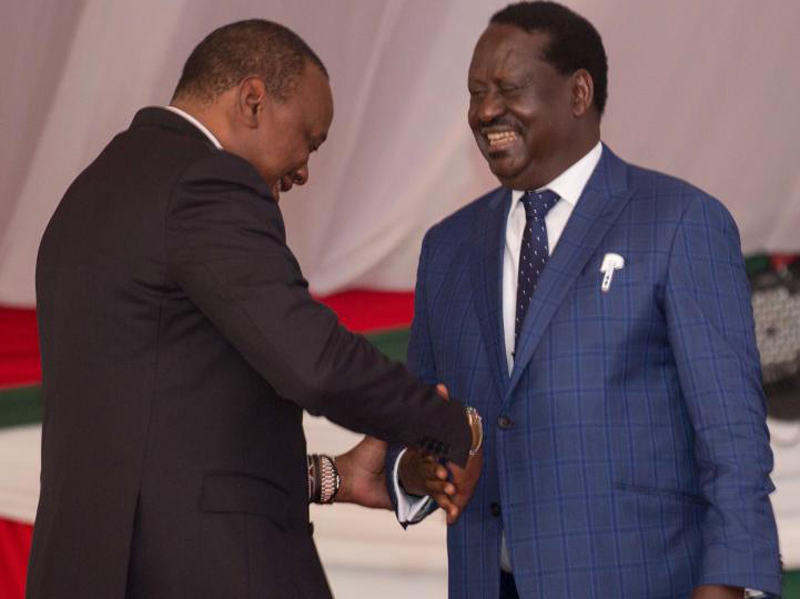×
The Standard e-Paper
Stay Informed, Even Offline

When Bethel Music songwriter and singer Kalley Heiligenthal said, “The war is over, turn around, lay your weapons on the ground, the smoke is fading, before the light...” she hardly had Kenya in mind.
But her sweet, melodic rendition and the lyrics capture the ebullient mood in the country as it witnesses what could be the death of the five-decade rivalry between the Kenyatta and Odinga political dynasties that has been characterised by a love-hate relationship.